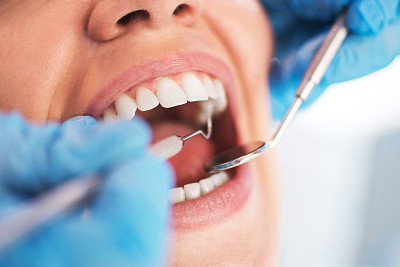Summary: Extracting a tooth is often viewed as a purely clinical procedure, but its emotional ramifications can resonate deeply within an individual. This article delves into the multifaceted journey of tooth extraction, exploring how it affects emotional stability, oral health, social interactions, and overall well-being. The apprehension leading up to the procedure, the relief post-extraction, the implications for oral hygiene, and the psychological shift are all critical components in understanding this experience. Additionally, we consider how addressing these emotional aspects can significantly enhance post-extraction recovery and the individual’s approach to dental health in the future. Ultimately, acknowledging the emotional journey can foster a more holistic view of dental care.
1. The Emotional Turmoil Before Extraction

The anticipation of a tooth extraction often brings with it an overwhelming wave of anxiety. Many individuals experience fear of the pain associated with the procedure, along with nervousness about the potential complications. This emotional turmoil can create a cycle of dread that intensifies as the appointment date approaches. The stigma surrounding dental surgeries often exacerbates these feelings, leading individuals to feel isolated in their worries.
This pre-extraction anxiety can have significant physical manifestations as well. Patients may experience disruptions in eating and sleeping patterns due to their nervousness. Moreover, stress can trigger headaches and muscle tension, further complicating their emotional landscape. It is crucial for dental professionals to recognize these signs and offer support, ensuring patients feel heard and understood.
Education can serve as a powerful tool in alleviating this emotional distress. Understanding the process of extraction, the anesthesia used, and the expected recovery can demystify the experience and help patients mentally prepare. Open communication with the dentist can foster trust and comfort, which are essential in reducing fear and anticipate a more positive outcome.
2. Post-Extraction Relief and Emotional Adjustment
Once the extraction is complete, many patients experience an initial sense of relief. The source of pain or discomfort has been removed, leading to a newfound lightness. However, this relief can be accompanied by a host of unexpected emotions, including sadness over the loss of the tooth. This emotional adjustment is often overlooked but can be just as impactful as the pre-extraction anxiety.
Patients may find themselves grappling with feelings of loss, especially if the extracted tooth had sentimental value or was associated with personal identity. The emotional transition from fear to sadness requires time and support, as patients reconcile their feelings with the necessity of the procedure for overall health.
Support systems are vital during this phase of adjustment. Friends and family can play a crucial role by providing companionship and reassurance. Engaging in light activities that divert focus from the extraction can also help patients cope with their emotions. This combination of support and distraction can ease the emotional burden while emphasizing recovery.
3. The Impact on Oral Health and Hygiene
The influence of tooth extraction extends beyond the emotional realm and into practical aspects of oral health. The removal of a tooth necessitates changes in hygiene practices, which can provoke various feelings from confusion to frustration. Patients may feel lost as they adapt to new oral care routines, which are essential for maintaining overall dental health.
Moreover, the risk of developing complications, like dry sockets or infections, can generate anxiety related to oral hygiene. These concerns often lead individuals to feel overwhelmed, emphasizing the need for thorough post-extraction care education. Dental professionals should take time to explain how to care for the extraction site and what signs of trouble to look out for, mitigating fears through knowledge.
Maintaining routine dental check-ups becomes more crucial following an extraction. This fosters a proactive approach to oral health and helps individuals remember that caring for their mouths is a long-term commitment. Instilling a sense of accountability can empower patients, positively influencing their emotional journey post-extraction.
4. Long-Term Psychological Effects and Social Implications
The psychological impacts of tooth extraction can extend far beyond the immediate aftermath. Long-term implications can manifest in how patients view their overall health and self-image. Individuals may develop a reluctance to engage in social situations, particularly those involving food, due to concerns about speaking or smiling comfortably.
Body image issues can also arise; a missing tooth can affect an individuals confidence. This emotional burden can lead to withdrawal from social activities, impacting relationships and overall quality of life. Dental healthcare providers should be aware of these struggles and encourage a supportive environment, guiding patients toward maintaining their social engagements despite such challenges.
Addressing the emotional nuances related to tooth extraction is crucial for mental well-being. Professionals in dental practices should consider holistic approaches that acknowledge the psychological journey alongside physical recovery. By fostering emotionally supportive environments, dentals offices can play a pivotal role in helping individuals navigate their emotional state through this significant life event.
Summary:
In conclusion, the emotional journey of tooth extraction is a multifaceted experience, incorporating complex feelings that can impact ones overall well-being. From pre-extraction anxiety to adjusting post-extraction emotions, patients encounter various psychological states that must be recognized and addressed. Understanding that oral health significantly intertwines with emotional health underscores the importance of holistic dental care.
The narrative of tooth extraction is not merely about the procedure but about managing the emotional landscape before, during, and after it. Attention to these elements can enhance patient experiences and outcomes, creating a more supportive and informed dental environment for everyone.
This article is compiled by Vickong Dental and the content is for reference only.
Vickong Dental
Vickong Dental is a large medical group established in Hong Kong in 2008 by professors from well-known medical universities in Guangdong and Hong Kong, as well as medical doctors from key national '985' universities (including Master's supervisors and senior professors). The chain of branches brings together expert dentists with PhDs and Master's degrees from Hong Kong and Mainland China, committed to providing high-quality dental treatment.
"Vickong Dental Practices the University Motto of 'Healing and Serving Society,' with a Stable Operation for Sixteen Years. It Has Been honored with Hong Kong Enterprise Leaders's Choice,' and is a Global Trusted Implant Center for the Nobel Implant System. Recommended by Hong Kong Metro Broadcast and Guangdong Television, it Serves Customers from Over Thirty Countries and Regions, Gaining the Trust and Favor of Citizens from the Guangdong-Hong Kong-Macau Greater Bay Area and Surrounding Cities.

Thousands of customers' unanimous praise
The most recognized and highly recommended dental service by customers in the Guangdong-Hong Kong-Macau Greater Bay Area
We Ensure You Receive Detailed Care and Attention Here
Hong Kong standards, Shenzhen prices, Your Trusted English-speaking dentists

Vickong Dental Medical-Grade Instrument Disinfection Process
Vickong Dental Medical-Grade Instrument Disinfection Process

Vickong Dental Chain: A Warm and Comfortable Environment for Treatment






Appointment Hours

Q&A
Why choose Vickong Dental?
Vickong Dental practices the university motto 「Medicine to Benefit Society」, with each branch bringing together highly qualified dentists with doctoral and master’s degrees from Hong Kong and the Mainland, and has maintained seventeen years of steady operation。Recipient of 「2024 Hong Kong Enterprise Leaders Brand」, 「2025 Hong Kong Enterprise Leaders Brand」, a Nobel Biocare Global Trusted Implant Center, and a brand recommended by Metro Radio Hong Kong and Guangdong TV。
To date, we have served customers from more than thirty countries and regions,earning exceptionally high word-of-mouth recognition and trusted recommendations from residents across the Guangdong-Hong Kong-Macao Greater Bay Area and surrounding cities
We have eight major branches in Zhuhai、Shenzhen,and a consultation and service assurance center in Hong Kong,so you can book a free consultation at any time for any questions,which is very reassuring.
If I do not accept the quotation after the CT scan, will I be charged??
No! As long as the actual treatment has not started, you will not be charged any fees.
Will there be any additional charges during the treatment process?
No, there won’t be any additional charges. Before treatment begins, we will clearly explain the treatment plan and its corresponding fees. Only after the patient agrees and signs the consent form will we proceed with the dental service.
Can I pay in Hong Kong dollars?
Yes. Vickong Dental accepts payment in Hong Kong dollars. The amount will be converted based on the exchange rate of the day, and the applicable rate will be clearly communicated to you in advance.
Can I reschedule my appointment at any time?
Yes. Please contact us via **WeChat** or **WhatsApp** as early as possible, providing your original appointment time and details, along with your preferred new date and time slot for rescheduling.













